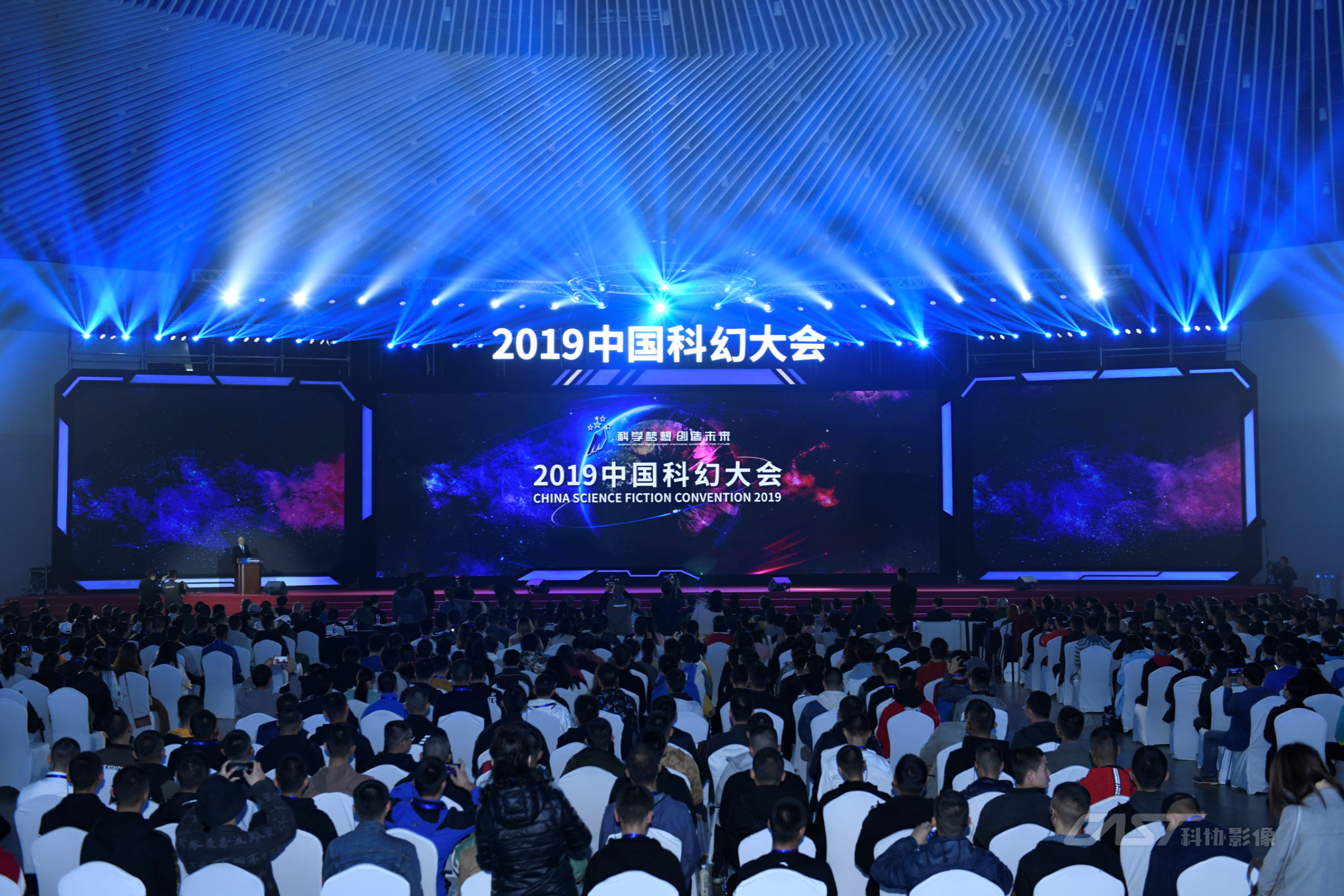International sci-fi heavyweights share insights at China convention
- By Yuan Fang
 0 Comment(s)
0 Comment(s) Print
Print E-mail China.org.cn, November 6, 2019
E-mail China.org.cn, November 6, 2019

With Chinese sci-fi works winning prestigious international awards in recent years, Chinese sci-fi writers are gaining more and more global recognition. The Chinese sci-fi blockbuster film, "Wandering Earth," gained widespread recognition when it was released in China early this year showing the public's unprecedented level of enthusiasm in science fiction. All this has made this year's China Science Fiction Convention especially important and relevant.
The convention, held in Beijing on Nov. 2 and 3, attracted some of the world's sci-fi heavyweights who shed light on the different aspects of sci-fi creation and sci-fi development in China.
Kevin J Anderson, the American science fiction author who has written spin-off novels for "StarWars,""StarCraft,""Titan A.E." and "The X-Files," noted that science fiction and science and technology are related in two different ways.
"Many people say that science fiction writers try to predict the future by imagining different technologies and different futures and go on to tell stories about them. Sometimes we get it right, but sometimes we are very very wrong ," said Anderson. "But another purpose for science fiction lies in it going in the opposite direction. Science fiction writers often make up very interesting technologies for their stories and sometimes inspire scientists to create those inventions."
Participants also said they believe that science fiction has a role to play in inspiring the public's interest in science.
"I think science fiction can actually act as an important bridge to get people more interested in science," said Mary Robinette Kowal, a famous sci-fi writer and the current president of the Science Fiction and Fantasy Writers of America (SFWA).
Lonard Mlodinow, the famous scientist and science writer who co-authored "A Brief History of Time" with Stephen Hawking, also believed that science fiction can get people interested in the wonders and romance of science and hopefully stimulate their mind.
Mlodinow gave the example of how many people doubted the safety of self-driving cars when someone was reported to have been hit by a self-driving car."People have to have the critical thinking to understand statistics and probability to figure out a more logical answer. When people are more familiar with science, they think better," he said.
When predicting general trends in sci-fi creation, Mlodinow noted a growing focus on the application of computer science and artificial intelligence.
"Each period of science fiction has its own concerns or focus depending on the culture of the times. Right now it's artificial intelligence," he said. "It's really a very revolutionary time right now. Programming is changing from its traditional form where the programmer tells the computer what to do, to a new way where the computer can think creatively and come up with its own ideas. This obviously has a lot of applications and a lot of possible benefits and dangers."
When asked to comment on China's sci-fi development in recent years, international participants at the convention said they hope to see more Chinese sci-fi films translated for international markets.
Russel Davis, a famous sci-fi writer and former president of SFWA, said:"One of the really great things for me since I started talking to people in China's writing community is how we learned from each other. I think we are going to continue to do that and ultimately what's going to happen is a really big boom of Chinese writers being published in the United States and in English, and conversely, more American writers being published in China. I hope what that ultimately leads to is collaboration, both in books as well as in film."
Anderson said:"It is very wonderful for western readers to be reading more Chinese sci-fi, just because China is so different from the west in the way you are raised, the way you are taught in school, and the way you live your lives. It's just a different perspective and having a different perspective makes for amazing stories but also a great exchange of ideas."
Mlodinow said:"Just as America looks at China as a great market, I hope Chinese sci-fi authors will look at America as a great market too. There's no reason that it should be dominated by American writers."
The 2019 China Science Fiction Convention, the fourth edition of the event, was sponsored by the China Association for Science and Technology and the government of Beijing.






Go to Forum >>0 Comment(s)